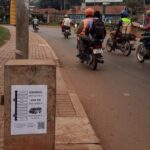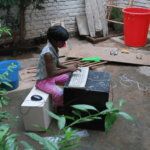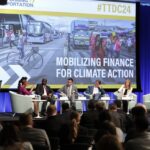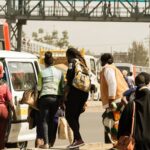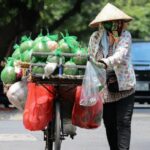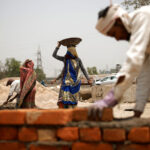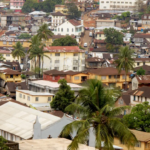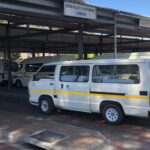Posts tagged with 'women'
Do informal transport networks in African cities provide equitable services for everyone that needs them? Unsurprisingly, the answer is often no. Operators frequently prefer to drive the safest and most central routes, inadvertently prioritizing commuters traveling to formal jobs in ...

The International Day of Play (IDOP), held annually on June 11th, is a unifying global moment to celebrate the power of play for all children everywhere. IDOP draws attention to Article 31 of the UN Convention on the Rights of ...

On a Sunday afternoon in September 2023, a group of about 30 individuals, including a group of mostly female neighbors from nine kampungs (a common term for “urban villages” or “informal settlements” across multiple languages and nations in Southeast Asia) ...

In the crowded slums of Zambia, Africa, members of the Zambia Youth Federation, a social movement of the urban poor, conducted climate change research and presented it in an emotional spoken word poem. Their message let policymakers know how climate ...

If a picture can tell a whole story, then the image below of an intersection in Dar es Salaam, Tanzania, shows the past, present and future of global transformation in the transport sector. During Transforming Transportation 2024, which focused on ...

For a woman living in an African city, public transport can be a daunting experience. Women usually plan their trips in advance, and consider a multitude of factors before setting out: What is the safest way to reach the bus ...

Although it is widely recognized that gender disparities are echoed in the design and operation of urban transportation systems, gender-responsive transportation planning is still in its early stages. Drawing from the TOPUK project, which stands for “Women Accessing Public Transport,” ...

In Asia, 14 countries — accounting for 26% of global transport emissions in 2019 — have made economy-wide net zero commitments. Momentum towards zero-emission transport is growing with countries enhancing ambition and including transport-related targets in their nationally determined contributions (NDCs). However, ...

The past year registered record-shattering global temperatures. People around the world are already witnessing epic heat waves, wildfires and drought at 1.1 degrees C (2 degrees F) of global warming, compared to pre-industrial averages. With current policies putting the world on ...

It’s an island no one in their right mind wants to be on, but sadly many of us increasingly find ourselves due to global warming. “Heat islands” are a concept British climatologist Gordon Manley came up with way back in ...

“Climate change is affecting cities all around the world, and Freetown is no exception.” That’s what Eugenia Kargbo, Freetown’s Chief Heat Officer, told UrbanShift during the City Academy hosted in Kigali last year. Through her role—the first of its kind in ...

The minibus taxi (MBT) industry is the backbone of South Africa’s public transportation system with a fleet of approximately 250,000 vehicles, operated by thousands of providers, employing some 600,000 drivers. MBTs account for 80% of all journeys taken by taxi ...

Like many cities, Nairobi greets visitors with the sight of densely packed buildings, the scent of roasting food and the sound of honking horns, mostly from motorcycles weaving through traffic. While these popular motorcycles provide an affordable and fast form ...

“Plastic kills, and the damages of plastic pollution have no borders. We cannot beat plastic pollution if we don’t tackle climate change, environmental loss and food crises at the same time.” That was the powerful message Paris Mayor Anne Hidalgo ...

Whether one seeks an escape from Delhi’s scorching summer heat or a winter afternoon basking in the sun, Sanjay Van National Park, one of the city’s few surviving urban forests, comes to mind. Mangalavanam in Kochi or Shalimar Bagh in ...







